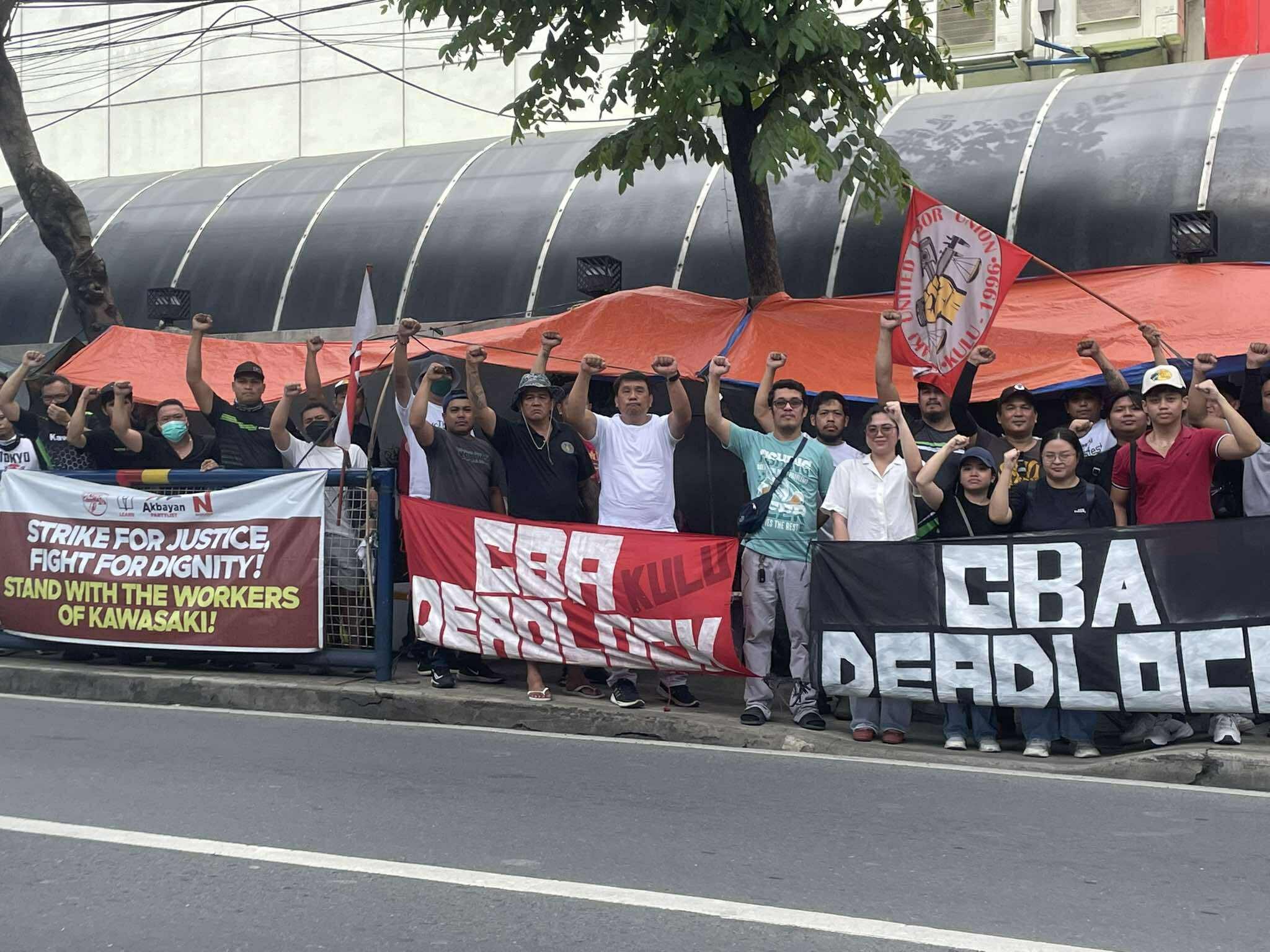Kawasaki should negotiate, not file cases

The Center for Trade Union and Human Rights (CTUHR) recognizes the difficulty faced by the Kawasaki Motors Philippines Corporation (KMPC) in balancing financial losses with workers’ demand for a wage hike. At the same time, arriving at a compromise can be done and has to be done. The KMPC management can do this by negotiating with the workers’ union in earnest, rather than filing charges.
On July 3, the motorcycle company management filed before the National Labor Relations Commission (NLRC) a case of illegal strike against the Kawasaki United Labor Union (KULU) and demanded that union officials be dismissed for leading the ongoing strike in the company’s Muntinlupa City factory.
The company management cited the “no strike, no lockout” clause of the last Collective Bargaining Agreement (CBA) that it signed with KULU. It claimed that the CBA states that strikes are not allowed in relation to economic provisions that are still under negotiations.
KULU is right in its response – that holding a strike is a Constitutionally-mandated right, that workers can launch a strike when CBA negotiations have reached a deadlock, and that the “no strike, no lockout” provision is only valid during the company CBA’s coverage from July 1, 2021 to June 30, 2024.
The Kawasaki workers’ strike started on May 21, 2025, 11 months after the CBA expiry. The Kawasaki management therefore does not have a legal, or even moral, basis for filing charges of illegal strike and demanding that union officials be suspended. The union should not be accused of endangering the jobs of thousands of workers in holding the strike.
As to the Kawasaki management’s claim that the ongoing strike is causing disruptions in operations, loss of opportunities, and harm in its reputation, these can be lessened and ended if it bargains in earnest with the workers. The threat of further financial losses and even company closure are pressures that should also be channelled to negotiating with the workers.
KULU is demanding a 10.5 percent wage increase, which it says is negotiable, while the KMPC is offering a 5 percent increase. The Kawasaki management should engage in negotiations to narrow the gap and stop resorting to filing charges against KULU.
The workers assert that in 2021-2023, the company earned P35 billion while labor cost was P300 million, saying the wage hike that they are demanding amounts to a meager reduction in the company’s profits. The KMPC should address this matter honestly and thoroughly with KULU. We reiterate that CBA negotiations are opportunities to improve workers’ rights in the workplace.
